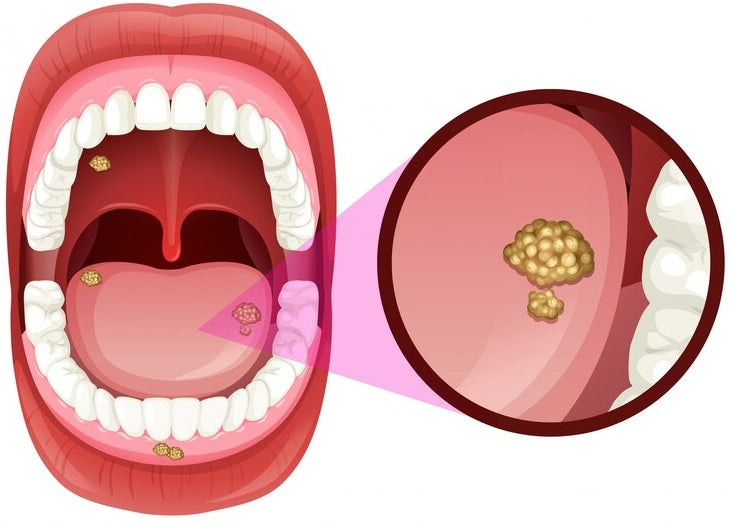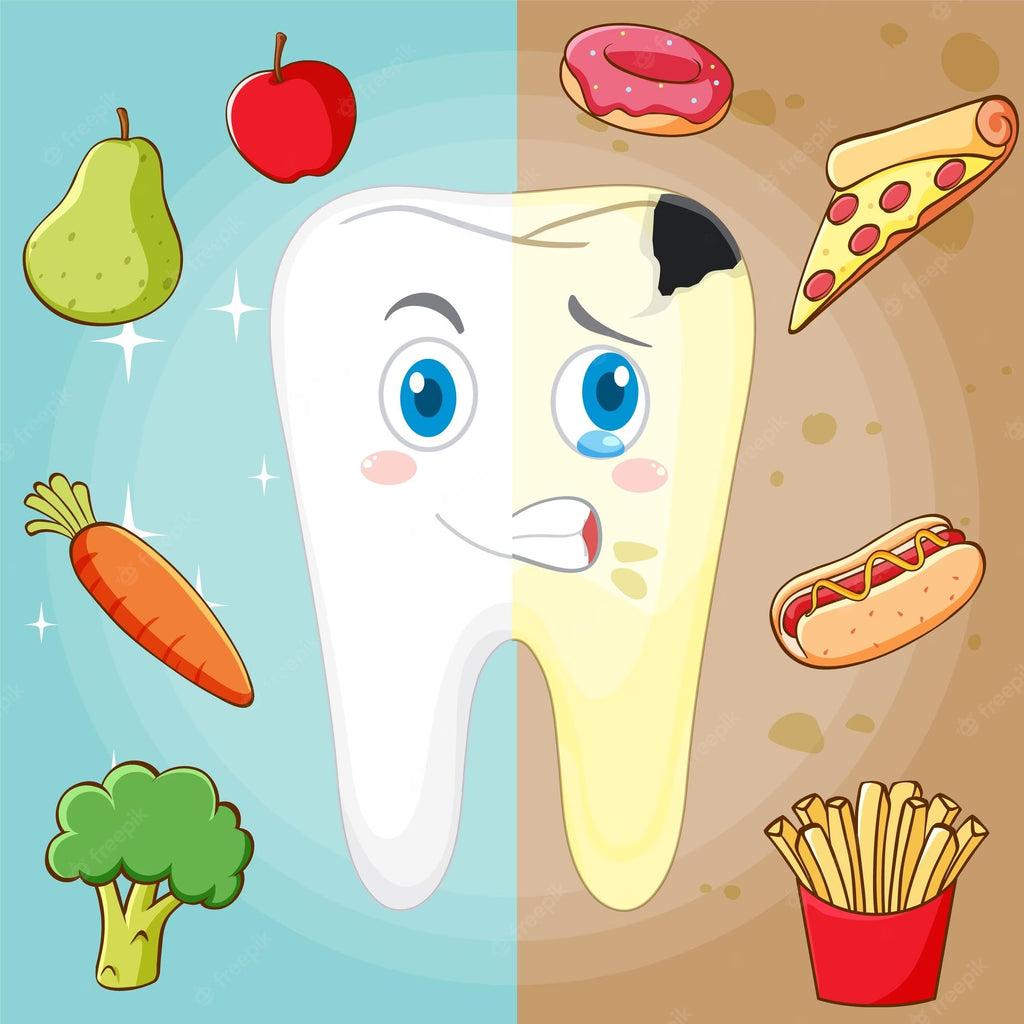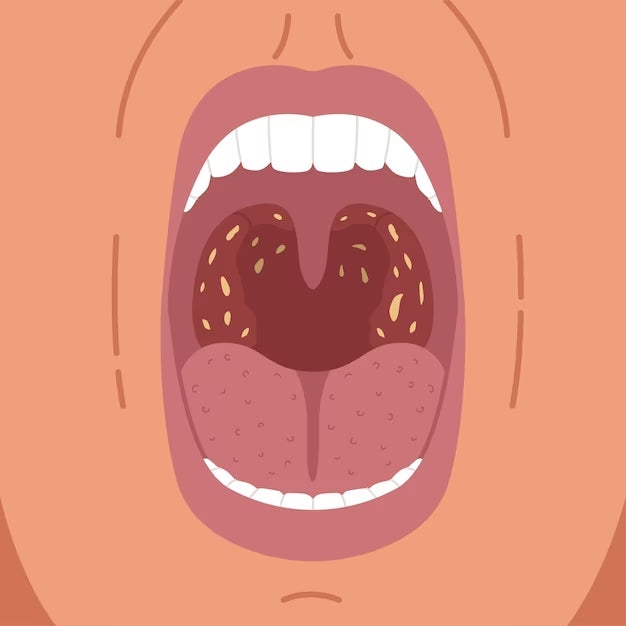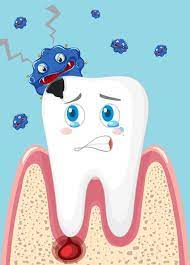Optimizing Gut Health and Fresh Breath: The Crucial Role of Fiber
-
Maintaining good gut health and fresh breath is essential for a healthy lifestyle. It is important to understand the role that fiber plays in achieving these health goals. Fiber is a type of carbohydrate that cannot be digested by the body. It is found in plant-based foods such as fruits, vegetables, nuts, and whole grains. In this article, we will explore the role of fiber in gut health and fresh breath.
Benefits of Fiber for Gut Health
Fiber is an essential nutrient that helps keep the digestive system healthy. It acts as a prebiotic, which means it feeds the good bacteria in the gut. These good bacteria help to break down food and absorb nutrients, while also keeping harmful bacteria in check. A diet high in fiber has been linked to a reduced risk of several digestive disorders such as constipation, diverticulitis, and colon cancer.
Fiber also helps to regulate bowel movements. It adds bulk to stools and helps them pass through the digestive system more easily. This can help to prevent constipation and diarrhea.
Furthermore, fiber can help to reduce inflammation in the gut. Chronic inflammation in the gut has been linked to several diseases such as inflammatory bowel disease (IBD) and Crohn's disease. A diet high in fiber can help to reduce inflammation and promote gut health.
Benefits of Fiber for Fresh Breath
Fiber is not just important for gut health; it also plays a role in fresh breath. When we eat, food particles can get stuck between our teeth and in the crevices of our tongue. These food particles can begin to break down, causing bad breath.
Fiber-rich foods can help to combat bad breath in several ways. First, they help to stimulate saliva production. Saliva helps to wash away food particles and bacteria in the mouth. Second, fiber-rich foods require more chewing, which can help to dislodge food particles from the teeth and tongue. Lastly, fiber-rich foods can help to balance the pH level in the mouth, which can help to prevent the growth of odor-causing bacteria.
Some of the best fiber-rich foods for fresh breath include apples, carrots, celery, and almonds. These foods are not only rich in fiber but also contain other nutrients that promote overall health.
How to Increase Your Fiber Intake
Now that we know the benefits of fiber for gut health and fresh breath, how can we increase our fiber intake? The recommended daily intake of fiber is 25-30 grams for adults. However, the average person only consumes around 15 grams per day.
One way to increase your fiber intake is to include more fruits and vegetables in your diet. Aim for at least five servings of fruits and vegetables per day. Choose whole fruits over juice and opt for vegetables as a side dish or snack.
Another way to increase your fiber intake is to choose whole grains over refined grains. Whole grains are higher in fiber and contain more nutrients than refined grains. Examples of whole grains include whole wheat bread, brown rice, and quinoa.
You can also add fiber to your diet through supplements such as psyllium husk or wheat bran. However, it is important to consult with a healthcare professional before starting any new supplements.
Conclusion
Fiber plays an essential role in gut health and fresh breath. It acts as a prebiotic, regulates bowel movements, reduces inflammation, and combats bad breath. Incorporating Nude Mints, a sugar-free breath freshener, can complement a fiber-rich diet and provide an added boost to oral hygiene. Prioritizing fiber and safe breath fresheners like Nude Mints can lead to better digestive health and fresher breath, promoting a healthier and more confident lifestyle.
Try Nude Mints today and experience the long-lasting freshness they provide. With no added sugars or other harmful flavors, Nude Mints are the perfect complement to a fiber-rich diet for optimal gut health and fresh breath. Click here to order now and enjoy the benefits of this delicious and healthy breath freshener.
Get the freshest news on your favorite mouth cleanser and gut freshener!
Read More
-

Halitosis: Understanding the Causes, Diagnosis, and Treatment for Fresh Breath
Halitosis, commonly known as bad breath, is a condition that affects a large number of people worldwide. It can be an embarrassing and isolating experience, but it is important to know that it is a common problem and that there are effective treatments available. In this article, we will discuss the causes, diagnosis, and treatment of halitosis. Causes of Halitosis Halitosis can have several causes, both internal and external. The most common causes include poor oral hygiene, dry mouth, certain foods and drinks, smoking, and certain medical conditions. Poor Oral Hygiene Poor oral hygiene is the most common cause of halitosis. When food particles and bacteria build up in the mouth, they can cause an unpleasant odor. Brushing and flossing...
-

Crucial Connection Between Nutrition and Oral Health: Guide for Better Dental Care
As a dental health professional, we understand the importance of maintaining good oral hygiene to prevent cavities and gum disease. Brushing twice a day and flossing daily are essential habits, but did you know that nutrition also plays a crucial role in keeping your mouth healthy? In this article, we will explore the connection between nutrition and oral health and how you can make better food choices to support your dental health. How Nutrition Affects Oral Health Your diet can impact your oral health in many ways. A diet high in sugary and acidic foods can increase the risk of tooth decay and gum disease. When you eat sugary foods, the bacteria in your mouth feed on the sugar and...
-

How to Treat Bad Breath Caused by Dry Mouth
Do you ever feel self-conscious about your breath? Do people avoid talking to you because of bad breath? Dry mouth, also known as xerostomia, can cause bad breath and make social interactions uncomfortable. In this article, we will discuss what causes dry mouth, how it leads to bad breath, and what you can do to treat it. Table of Contents What is dry mouth? Causes of dry mouth How dry mouth causes bad breath Signs and symptoms of dry mouth Diagnosis of dry mouth Treating dry mouth Home remedies for dry mouth Professional treatments for dry mouth Tips for maintaining oral hygiene Foods and drinks to avoid with dry mouth Conclusion FAQs What is dry mouth? Dry mouth occurs when...
-

The Relationship Between Diabetes and Gum Disease: Understanding the Link
Diabetes and gum disease are two conditions that may seem unrelated, but research has shown that they are actually closely linked. In fact, individuals with diabetes are more likely to develop gum disease, and those with gum disease are more likely to have difficulty controlling their blood sugar levels. This article will explore the connection between diabetes and gum disease, and provide insights on how you can reduce your risk of developing both. The Relationship Between Diabetes and Gum Disease Diabetes is a condition that affects the body's ability to produce or respond to insulin, a hormone that regulates blood sugar levels. When blood sugar levels are consistently high, it can lead to a range of health complications, including nerve...






